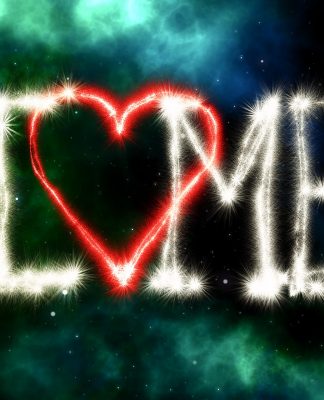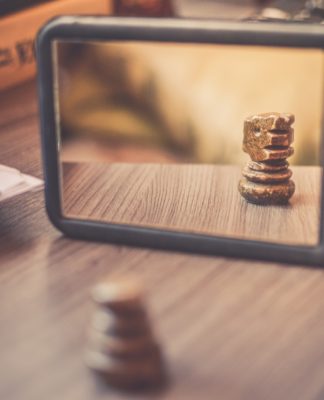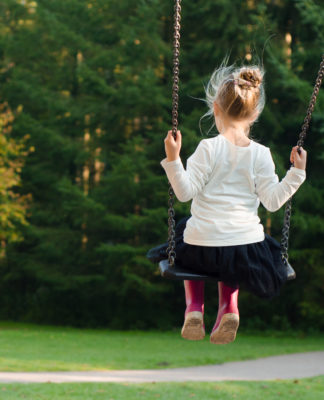A few weeks ago, I wrote a post about what I thought was the worst possible emotion. There are certainly enough worthy aspirants including hate, anger, and sadness. But I felt regret was the winner (or should I say loser) because its causes can’t be undone, it slowly eats away at your soul, and it can last a lifetime.
It occurred to me that, as long as I’m thinking about emotions, I would also nominate what I believe to be the best possible emotion. As with bad emotions, there are plenty of candidates: love, happiness, joy, excitement, and inspiration. But I thought, “What positive emotion underlies and allows us to experience all of those other wonderful emotions? What emotion, in its absence, prevents us from feeling good?”
And the winner of the Best Possible Emotion award goes to…Hope. Why hope?, you ask. Because I believe that it is the wellspring from which all other good emotions emerge. What is hope? It is the basic belief that good things will happen. Hope creates possibilities. Hope instills in us a sense of expectation and anticipation that what we want can come true.
Hope is the antithesis of regret in several ways. Where regret causes us to dwell on the past, hope directs our gaze to the future. Regret is about lost opportunity, while hope is about opportunity to be gained. We feel regret for our inaction, for what we didn’t do. We feel hope for our action, for what we can do.
To see the power of hope, close your eyes and imagine the feeling of having no hope. What are the dominant emotions that are present? Fear, frustration, sadness, despair. A dark cloud hovers over you. Can you feel any positive emotions in the absence of hope? I don’t think so. Hope, in fact, is the only way to get rid of those decidedly unpleasant emotions.
Now, fill yourself with hope and tell me what other emotions come to the fore? Well, just about all the great emotions that are out there. You feel energetic, happy, and that dark cloud lifts and the sun shines in your soul.
Hope isn’t just a pleasant feeling. Rather, it is empowering. It gives us confidence that if we try, we can succeed. Hope gives us the motivation to pursue possibilities and opportunities. Hope drives us to work hard and persist even in the face of obstacles, setbacks, and failure. Why? Because even during the darkest times, there is hope, but only if we feel it.
Is there anything more American than hope? I say no. Hope is woven into the very fabric of the American narrative. Hope is what propelled the pilgrims to seek religious freedom in the New World. It was imbued in the thinking of the Founding Fathers that resulted in the Constitution. Hope lay at the heart of every movement that has shaped our history, from abolitionism, to Manifest Destiny, to the Suffragists, to the civil rights movement of the 1960s, to the present.
Hope lies at the core of the American Dream. Hope is what brought people from all over the world to the U.S. looking for a better life. It’s what drove immigrant parents to work long hours at tedious jobs to give their children the chance to go to college and realize the American Dream. Hope is what created the middle class. It’s also what has driven America to become the richest country in the world, a leader in innovation, and a beacon of light for peoples and countries with little reason for hope.
Yet, as I write this post, hope seems to be in ever-decreasing supply in America these days. There is a palatable sense of hope lost running through our country today. As the haves have more and the have-notes have fewer opportunities to have more, the sense of hope that made America such a vital and inspiring country seems to be fading. The American Dream seems more like a dream than a possibility now.
I can see hopelessness in so many of our institutions. It is no more apparent than in our toxic political system where those who purportedly represent us are more concerned with their own interests than forging alliances that will actually give us hope. And those with extreme ideologies are more interested in demonization and conquest than civility, compromise, and solutions.
Our public education system seems irreparably broken for those poor and minority children who were once the hopeful recipients of the American Dream and an essential source of our human capital. Our economic engine that once propelled the vehicles that people drove with hope is now so corrupted or flawed that there is little reason for many Americans to get in the metaphorical driver’s seat.
Could the epidemic of obesity, fiscal irresponsibility, and absorption in the fantasy world of our media-fueled culture that has gripped America be a reflection of the nihilism—the antithesis of hope—that many in our country feel? “We have no chance, so we might as well bury our heads in the sand and enjoy ourselves.” Could the rise in narcissism and the decline in empathy among our youth suggest a “circling of the wagons” on the self to ensure our individual survival during a time when hope for survival, at least of the economic variety, seems to be at a low point?
I think back wistfully to 2008 and then-candidate Obama’s mantra of hope as exemplified by the iconic multicolored poster. Were we so naïve to think there was hope? I hope not. And will the formerly indomitable spirit of hope that has taken America this far reemerge like a phoenix rising from the ashes. I hope so.

 Dr. Jim Taylor received his Bachelor's degree from Middlebury College and earned his Master's degree and Ph.D. in Psychology from the University of Colorado. He is a former associate professor in the School of Psychology at Nova University in Ft. Lauderdale and in the Graduate School of Professional Psychology at the University of Denver. He is currently an adjunct professor at the University of San Francisco. Dr. Taylor is the author of 14 books and the lead editor of three textbooks, has published more than 750 articles in scholarly and popular publications, and has given more than 1000 workshops and presentations throughout North America, Europe, and the Middle East. Dr. Taylor blogs for psychologytoday.com, huffingtonpost.com, as well as on his own
Dr. Jim Taylor received his Bachelor's degree from Middlebury College and earned his Master's degree and Ph.D. in Psychology from the University of Colorado. He is a former associate professor in the School of Psychology at Nova University in Ft. Lauderdale and in the Graduate School of Professional Psychology at the University of Denver. He is currently an adjunct professor at the University of San Francisco. Dr. Taylor is the author of 14 books and the lead editor of three textbooks, has published more than 750 articles in scholarly and popular publications, and has given more than 1000 workshops and presentations throughout North America, Europe, and the Middle East. Dr. Taylor blogs for psychologytoday.com, huffingtonpost.com, as well as on his own 
















